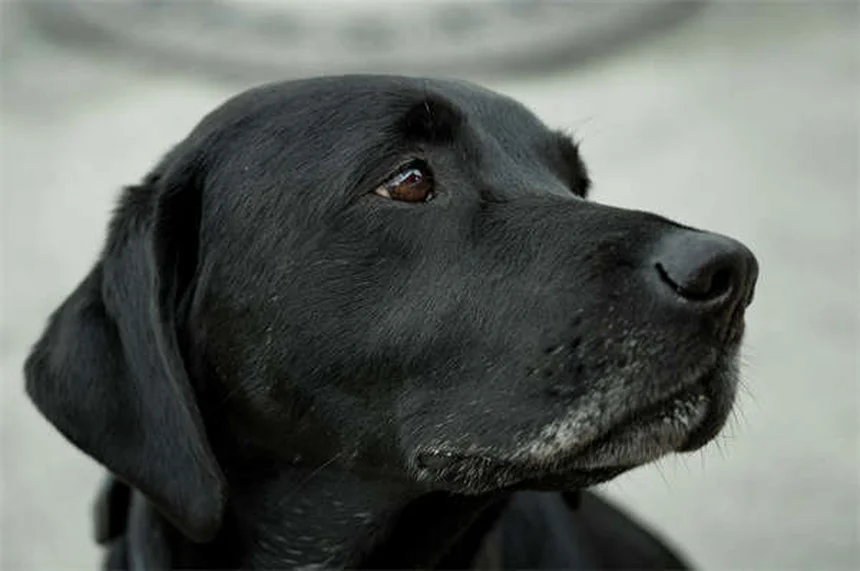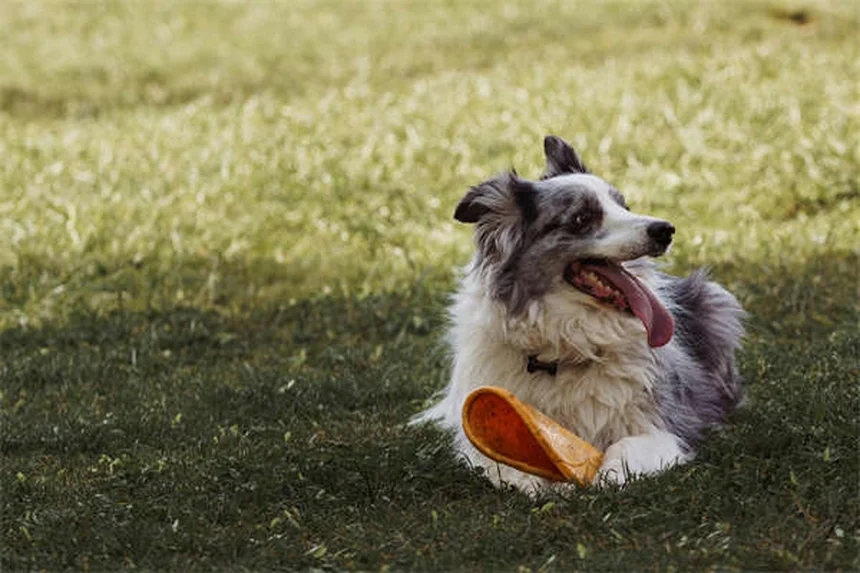Why does my rabbit have hairballs? The answer is simple: your bunny's grooming habits and diet are the main culprits. Unlike cats, rabbits can't vomit up hairballs - everything they swallow must pass through their entire digestive system. That's why those trichobezoars (vet-speak for hairballs) can become dangerous blockages if not addressed properly.I've seen too many rabbit owners panic when they find out about hairballs, but here's the good news: with the right care, you can prevent most hairball issues. The key is understanding why they happen and knowing the warning signs. Let me walk you through what every rabbit parent needs to know about these fuzzy digestive disasters.
E.g. :Flystrike in Rabbits: 5 Warning Signs & Emergency Treatment
- 1、Why Does My Rabbit Have Hairballs?
- 2、What Causes These Pesky Hairballs?
- 3、Emergency! What To Do About Hairballs
- 4、Prevention Is Better Than Cure
- 5、When Hairballs Become Deadly
- 6、Long-Term Health Management
- 7、The Hidden Dangers of Seasonal Shedding
- 8、The Water Factor You're Probably Missing
- 9、The Emotional Side of Hairball Prevention
- 10、When Nature Needs a Helping Hand
- 11、FAQs
Why Does My Rabbit Have Hairballs?
The Surprising Truth About Rabbit Grooming
You know how cats get hairballs? Well, rabbits can get them too! We call these trichobezoars - fancy vet talk for a clump of hair mixed with food in your bunny's tummy. Here's the wild part: while finding some hair in their stomach is normal (they groom themselves like little furry narcissists), big clumps mean trouble.
Imagine eating a wool sweater - that's basically what happens when rabbits get serious hairballs. Unlike cats who can just hack them up, rabbits can't vomit. Everything they swallow has to go all the way through their digestive system. That's why fiber is so crucial - it's like nature's plunger for their gut!
Spotting Trouble: Hairball Warning Signs
How can you tell if your fluffy friend has a hairball problem? Look for these red flags:
| Mild Symptoms | Emergency Signs |
|---|---|
| Eating less hay | No poop for 12+ hours |
| Smaller poops | Bloated belly |
| Grinding teeth | Collapsing |
Did you know a healthy rabbit produces 200-300 poops daily? That's right - their digestive system is like a tiny poop factory! When hairballs slow things down, production drops dramatically.
What Causes These Pesky Hairballs?
 Photos provided by pixabay
Photos provided by pixabay
Diet Disasters
The #1 culprit? Not enough hay. I can't stress this enough - rabbits need unlimited timothy hay! Think of it this way: hay is the broom that sweeps their digestive tract clean. Without it, hair just accumulates like dust bunnies in a neglected house.
Other diet mistakes include:- Too many pellets (they're like junk food for bunnies)- Not enough leafy greens- Dehydration (water keeps everything moving)
Stress and Other Factors
Ever get stomachaches when stressed? Rabbits do too! Major stressors include:- Loud noises- Predator scents (even from friendly dogs)- Cage mate conflicts- Recent vet visits
Here's something surprising - dental problems can also lead to hairballs. If their teeth hurt, they groom less effectively, swallowing more hair. It's like trying to brush your hair with a broken comb!
Emergency! What To Do About Hairballs
Vet Visit Essentials
If you suspect a hairball crisis, time is critical. Your vet will likely:1. Take X-rays (bunny tummy scans)2. Check for gut sounds (healthy guts gurgle like a happy stomach)3. Palpate the abdomen (gently feeling for blockages)
Pro tip: Bring a fresh poop sample! It helps the vet assess digestive health faster than waiting for test results.
 Photos provided by pixabay
Photos provided by pixabay
Diet Disasters
For mild cases, your vet might recommend:- Critical Care formula (a special recovery food)- Stomach massages (gentle clockwise circles)- Encouraging movement (bunny yoga, anyone?)- Pineapple juice (the enzymes can help break down hair)
But here's a question: Why can't I just give my rabbit hairball medicine made for cats? Great question! Cat formulas often contain ingredients toxic to rabbits. Always use rabbit-specific treatments.
Prevention Is Better Than Cure
Diet Do's and Don'ts
Build your rabbit's menu like this:- 80% timothy hay (the good stuff!)- 15% fresh greens (romaine, cilantro, parsley)- 5% pellets (measured carefully)
Avoid these like the plague:- Sugary treats- Seeds/nuts- Human snacks- Iceberg lettuce (it's basically crunchy water)
Grooming Like a Pro
Brushing isn't just for show bunnies! During shedding season:- Use a slicker brush daily- Try rubber grooming gloves (they love the massage)- Check for mats behind ears and under legs
Here's a fun fact: rabbits shed in patterns from head to tail. When you see the "shed line" moving down their back, that's prime brushing time!
When Hairballs Become Deadly
 Photos provided by pixabay
Photos provided by pixabay
Diet Disasters
This is the nightmare scenario - when hairballs completely block digestion. Signs include:- No eating/drinking- Lethargy- Hunched posture- Loud tooth grinding (their version of screaming in pain)
Did you know a rabbit's digestive system can shut down in as little as 12 hours without food? That's why fasting is never an option for bunnies!
Emergency Protocols
If you suspect stasis:1. Keep them warm (stress worsens the condition)2. Offer favorite greens (try cilantro - most can't resist)3. Call your vet immediately (after-hours clinics exist for a reason!)
Here's another question: Why do some rabbits get hairballs while others don't? Excellent point! Genetics play a role - long-haired breeds like Angoras are more prone. But proper care can prevent issues in any rabbit.
Long-Term Health Management
Creating a Hairball-Proof Routine
Make these habits:- Weekly weight checks (use a kitchen scale)- Daily poop inspections (get familiar with normal)- Monthly vet checkups for seniors
Fun trick: teach your rabbit to hop on a scale for treats. It turns health monitoring into a game!
When to Worry Less
With proper care, most rabbits avoid serious hairball issues. Success signs:- Consistent appetite- Regular poop production- Normal energy levels- Shiny coat
Remember - a happy rabbit is an active, eating, pooping rabbit. It's that simple!
The Hidden Dangers of Seasonal Shedding
Why Spring and Fall Are Critical Times
You know how we humans change our wardrobes with the seasons? Well, rabbits do too - except they grow entirely new coats! Twice a year, your bunny will go through a major molt where they shed enough hair to make a small pillow. During these periods, hairball risks skyrocket because they're swallowing way more fur during grooming sessions.
Here's something wild - rabbits actually shed in a wave pattern from head to tail. You can literally see the "shed line" moving down their body like a slow-motion tsunami of fur. When you spot this, that's your cue to become a full-time bunny barber! I keep a lint roller in every room during shedding season - not for my clothes, but for my rabbit!
Grooming Tools That Actually Work
Not all brushes are created equal when it comes to rabbit care. After trying dozens of options, here's what I've found works best:
| Tool | Best For | Bunny Rating |
|---|---|---|
| Slicker brush | Removing loose undercoat | ⭐⭐⭐⭐ (tolerates it) |
| Rubber grooming gloves | Short-haired breeds | ⭐⭐⭐⭐⭐ (loves the massage) |
| Flea comb | Removing stubborn mats | ⭐⭐ (gives me the stink eye) |
Pro tip: Always brush in the direction of hair growth and avoid pulling. If your rabbit starts thumping their back feet, that's bunny language for "I'm done with this spa treatment!"
The Water Factor You're Probably Missing
Hydration Station Essentials
Here's something most rabbit owners overlook - water intake plays a huge role in preventing hairballs. A well-hydrated digestive system moves everything along smoothly, while dehydration turns your bunny's gut into a hair-clogged pipe. I like to think of water as the oil that keeps their internal machinery running smoothly.
But here's the million dollar question: How can you tell if your rabbit is drinking enough? Great question! A good rule of thumb is they should drink about 50-150ml of water per kilogram of body weight daily. The easiest way to monitor this? Use a water bottle with measurements and check it at the same time each day.
Creative Ways to Boost Water Intake
If your rabbit isn't a big drinker, try these tricks:- Offer water in both a bowl and bottle (some prefer one over the other)- Add a few sprigs of fresh herbs to their water (mint works great)- Serve wet leafy greens straight from rinsing- Make "bunny tea" by soaking hay in water
I once had a rabbit who refused to drink until I put ice cubes in his bowl - turns out he liked playing with them! Sometimes it's the little things that make the difference.
The Emotional Side of Hairball Prevention
Stress Reduction Techniques
You wouldn't believe how much a rabbit's emotional state affects their digestion. A stressed bunny grooms excessively, leading to more hair ingestion. I've seen cases where simple environmental changes reduced hairball incidents by 80%!
Here are some stress-busters that work wonders:- Maintain a consistent daily routine- Provide hiding spots (cardboard boxes are bunny condos)- Use pheromone diffusers made for rabbits- Play soft classical music during peak stress times
Fun fact: Rabbits actually bond strongly with their human caregivers. Spending just 30 minutes of quality time daily can significantly lower their stress levels. That's right - your Netflix binge sessions just became medically necessary for your pet!
The Power of Companionship
Here's something vets don't always mention - rabbits living in pairs tend to have fewer hairball issues. Why? Because they groom each other more efficiently than they can groom themselves! It's like having a built-in personal stylist.
But before you rush to get a friend for your bunny, remember that rabbit relationships are complicated. They need proper introductions (we're talking weeks of supervised dating) and both should be spayed/neutered. I've seen more than one "love at first sight" turn into a fur-flying disaster!
When Nature Needs a Helping Hand
Digestive Aids That Actually Help
Sometimes even with perfect care, rabbits need extra support. After consulting with multiple exotic vets, here are the supplements I've found most effective:
Papaya enzyme tablets: These help break down the keratin in hair. My rabbits think they're treats! Just be sure to get the pure kind without added sugars.
Probiotics specifically formulated for rabbits: These good bacteria keep their gut microbiome balanced. I like to mix them with a little mashed banana for easy administration.
Remember: Never use over-the-counter medications without vet approval. That "harmless" hairball remedy from the pet store could be deadly to your bunny!
The Exercise Connection
Here's a fun fact - active rabbits have fewer digestive issues! Movement literally helps shake things loose in their system. I aim for at least 4 hours of supervised playtime daily outside their enclosure.
Some exercise ideas:- Create an obstacle course with cardboard tubes- Hide treats in a digging box- Teach simple tricks (yes, rabbits can learn!)- Set up a bunny-safe "digging pit" with shredded paper
My current rabbit has a favorite game we call "Treat Tornado" where I scatter herbs around the room for him to find. It gets him moving and satisfies his natural foraging instincts. Plus, it's hilarious to watch!
E.g. :Disorders and Diseases of Rabbits - All Other Pets - Merck ...
FAQs
Q: Can rabbit hairballs kill my bunny?
A: Absolutely yes, and that's why we take hairballs so seriously in rabbits. Unlike cats who can cough them up, rabbits' digestive systems are one-way streets. When a large hairball forms, it can create a complete blockage that stops all digestion. Here's what makes them so dangerous: within just 12-24 hours of not eating, a rabbit's digestive system can shut down completely in a condition called GI stasis. That's why we tell owners to treat any suspected hairball as an emergency. The good news? With proper diet (lots of hay!) and regular grooming, most rabbits will never develop life-threatening hairballs.
Q: How often should I brush my rabbit to prevent hairballs?
A: During normal times, a quick brush 2-3 times a week works for most short-haired breeds. But here's the game-changer: when your rabbit is shedding (you'll see tufts of fur coming out easily), you'll want to brush daily, maybe even twice a day for heavy shedders like Angoras. Pro tip: watch for the "shed line" moving down their back - that's your cue to ramp up grooming. I recommend using a slicker brush first, then follow with a rubber grooming glove to catch loose hairs. The five minutes you spend brushing could save your bunny from painful digestive issues later!
Q: What's the best diet to prevent rabbit hairballs?
A: Think of your rabbit's diet like this: 80% timothy hay, 15% fresh greens, and 5% pellets. That hay isn't just food - it's nature's digestive scrub brush! The long fibers literally sweep hair through their system. Many owners make the mistake of feeding too many pellets (which are like junk food for bunnies) and not enough hay. For greens, stick to fiber-rich options like romaine, cilantro, and parsley. And here's a secret weapon: a teaspoon of fresh pineapple juice occasionally can help break down hair naturally, thanks to its enzymes. Just avoid sugary treats - they slow digestion and make hairball problems worse.
Q: How can I tell if my rabbit has a hairball emergency?
A: Watch for these five critical signs: 1) No poop for 12+ hours (remember, healthy bunnies poop 200+ times daily!), 2) A hard, bloated belly, 3) Loud tooth grinding (their version of screaming in pain), 4) Complete loss of appetite, and 5) Lethargy or collapse. If you see any of these, get to a rabbit-savvy vet immediately. For less severe cases, you might notice smaller poops, eating less hay, or slightly reduced activity. These warrant a vet visit too, just not necessarily an emergency one. My rule? When in doubt, check it out - rabbits hide illness well until it's serious.
Q: Are some rabbit breeds more prone to hairballs?
A: You bet! Long-haired breeds like Angoras, Lionheads, and Jersey Woolies are hairball magnets because they simply have more fur to ingest. But here's something surprising: even short-haired rabbits can develop problems if their diet is off or they're stressed. Dwarf breeds tend to be more prone too, possibly because of their smaller digestive tracts. The key isn't avoiding these breeds (they're wonderful pets!), but being extra vigilant with their care. Double up on grooming during sheds, and consider adding a digestive supplement if your vet recommends it. With proper management, any breed can live hairball-free!







